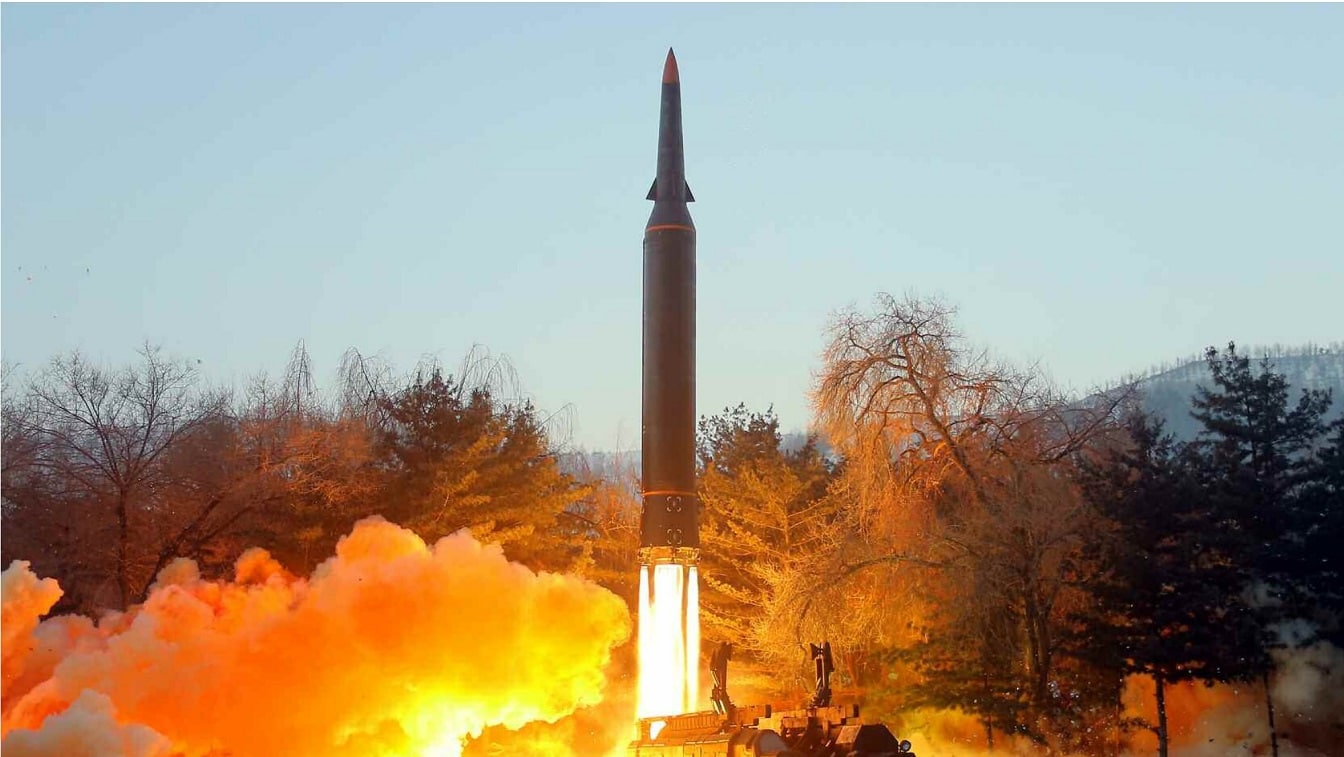The big change last year in Korean security was the return of the reality of multilateral sanctions as genuine international law constraining South Korea’s interaction with North Korea. In 2022, after March’s South Korean presidential election, the new president, regardless of party, will have to factor in these restrictions if he wants actual progress with the North in the place of the heady, but ultimately empty, talk of the last few years.
The North Korea Sanctions Never Went Away
Elected in 2017, dovish South Korean President Moon Jae-In has proceeded for years in his Northern détente as if UN sanctions were somehow optional or waivable. His administration has never admitted that South Korea, as a UN member-state, is as bound by UN sanctions on North Korea like any other UN member-state, nor does it assist in patrolling for sanctions violations. Moon has proposed one inter-Korean cooperation idea after another which violated sanctions, leading to regular strain with the South’s American ally. Briefly in 2018-19, when former US President Donald Trump met with North Korean leader Kim Jong Un, US sanctions enforcement was relaxed as a gesture of goodwill. But the nine unanimous UN Security Council resolutions have not been formally reversed. Indeed, since the imposition of ‘sectoral sanctions’ in 2017, which blockade interaction with whole sectors of the North Korean economy, the sanctions have become quite stiff.
Where Trump swung wildly from maximum pressure on North Korea to ‘falling in love’ with Kim, the administration of Joseph Biden brought US policy back to pre-Trumpian stability, particularly regarding sanctions. They are written into US law, and Biden has supported their enforcement. The heady but unfulfilled Trump-Moon talk of the last few years gave way, in the end, to the reality that North Korea has not moved, even a little, on denuclearization or de-missilization and that consequently, the sanctions are here to stay.
The Upcoming South Korean Presidential Election
In March, South Korea will elect a new president. On foreign policy, the differences are stark. The leftist or progressive candidate will likely pursue the détente or engagement of North Korea which Moon Jae-In tried. That North Korea wants a deal has been an article of faith on the South Korean left for decades. The conservative or hawkish candidate has promised a tougher line on North Korea. But both will probably seek dialogue.
This is wise. North Korea is so dangerous that we should always try to talk with it. But the North Koreans will almost certainly seek, as they did during Moon’s presidency, the roll-back of sanctions. It is critical that neither candidate, regardless of party, make such an offer, barring some movement on the North’s weapons of mass destruction. This is ultimately what undid Moon’s détente. Moon made promises he could not keep, as South Korea does not have the ability to alter the UN resolutions. Nor did Moon have the domestic political support to unilaterally abrogate the sanctions and simply engage the North on his own. That would have threatened the South’s relationship with the United States and other democratic partners. Moon’s leftist coalition at home might have supported that risky move, but it does not have the majoritarian backing necessary for a political fight of that magnitude.
Where Trumpian unpredictability and lust for a Nobel Peace Prize created room for Moon to move, the new South Korean president will enjoy no such space. Biden is a fairly traditional hawk on North Korea. As chairman of the Senate Foreign Relations Committee before his vice presidency under President Barack Obama, Biden supported sanctions and a tougher line on North Korea. As vice president under Obama, he did the same. The next South Korean president will need to respond to this fairly establishmentarian approach to North Korea, or risk being frozen out by Biden as Moon was in 2021.
The Enduring Korean Status Quo
The Moon presidency generated a lot of heat and excitement. Moon promised a breakthrough and convinced Trump and Kim to meet each other. For a year or so in 2018-19, it looked as if Moon might be vindicated. But the Korean status quo – the long, grinding stalemate between the Koreas – is deeply set. It reflects ideological and strategic divides which are profound and enduring.
The sanctions too reflect this. They have tightened over the years as the North’s WMD program has expanded. They reflect the consensus of the international community that the North’s weapons are a regional if not a global danger, and that North Korea is not a private issue to be resolved by Koreans alone. Perhaps this was so a generation ago, but North Korea is now too well-armed. The sanctions are intended to blunt, if not reverse, that threat, and future South Korean initiatives toward the North will meet the same international resistance if sanctions are treated as cavalierly as the Moon government viewed them.
2022 will be the year this becomes clear, a year of the re-emergence of the status quo from the last few years’ hype. As Moon leaves the stage and Biden fully engages his successor, Biden will again insist that North Korea meet at least some benchmark of arms control before sanctions relief is forthcoming. In doing so, Biden will reflect the international community’s lengthy record of unanimously sanctioning the North over its nuclear weapons on which the North has not budged at all these past few years. This is pre-Trump/pre-Moon status quo, and the great disappointment of their presidencies is that they did not change this reality at all. We are back where we started.
Dr. Robert E. Kelly (@Robert_E_Kelly; website) is a professor of international relations in the Department of Political Science at Pusan National University. Dr. Kelly is now a 1945 Contributing Editor as well.

